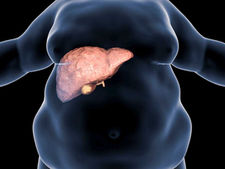
interstitial cystitis
Interstitial cystitis; It is a chronic inflammatory reaction of the bladder in the absence of microbiological agents, with complaints of pain in the pelvic area (especially in the bladder area), frequent urination, constant feeling of urgency, urinary incontinence. 90% of patients are women, and the age of onset of symptoms is often between 30-50 years old.
What are the symptoms?
Bladder pain,
frequent urination,
The constant desire to urinate and the feeling of pain generally become more evident as the bladder fills, and decrease at different rates when urinating.
Patients' complaints generally include periods of exacerbation and recovery.
Sexual intercourse is often painful for both men and women.
Fibromyalgia, musculoskeletal pain, constipation, irritable bowel syndrome, autoimmune diseases, depression, allergies and migraine are observed more frequently.
How to Diagnose?
The diagnosis of interstitial cystitis is made by excluding other diseases with similar findings. The following examinations can be performed to make this distinction: Detailed History Physical Examination Urine Analysis and Culture Inquiry Forms and Voiding Chart Potassium Sensitivity (Parsons) Test Urodynamics Cystoscopy
What are the Treatment Methods?
Conservative Approach: Informing the patient about his disease
Lifestyle changes: avoiding stress, exercising, learning to relax the pelvic floor muscles, warm shower baths, etc.
Diet: Especially onions, tomatoes, legumes, bananas, apples, apricots, citrus fruits such as oranges, tangerines and lemons, peaches, nectarines, yoghurt, mayonnaise, ketchup, mustard and especially spicy dishes, vinegar, some salad dressings, artificial sweeteners, alcohol from beverages or those containing caffeine such as coffee and colas, some fruit juices and tea are known to increase patients' complaints. It would be useful to try these individually one by one and eliminate those that increase complaints from the diet.
Step 1: Drug Treatments
Medical treatment for interstitial cystitis primarily begins with oral tablets. Depending on the situation, it can be transferred to medications administered into the bladder.
Second-Line Treatment: Cystoscopy + Hydrodistension and Resection of Hunner Ulcers
3rd Step Treatment: Bladder Filling Application and Sacral Neuromodulation
4th Step Treatment: Cyclosporin A and intramural botulinum toxin A injections.
5th Step Treatment: Urinary Diversion + Cystectomy
Kiss. Dr. Serhat Ozgun
prostate surgery, laser lithotripsy, holep, prostate cancer, prostate, prostate surgery, laser lithotripsy, holep, prostate cancer, does SSI cover prostate surgery, prostate health, urology, prostate diseases, prostate treatment, prostate surgery, laser prostate surgery, prostate problems, benign prostate enlargement, prostate symptoms, prostate biopsy, prostate examination, prostate ultrasound, prostate hormone therapy, prostate biopsy result, prostate cancer stages, prostate cancer treatment, prostate cancer symptoms, prostate cancer risk factors, prostate cancer diagnosis
FOR INFORMATION AND APPOINTMENT, YOU CAN LEAVE YOUR NUMBER OR ASK OUR EXPERTS
YOU CAN LEAVE YOUR NUMBER FOR INFORMATION AND APPOINTMENT AND ASK QUESTIONS TO OUR EXPERTS



-04.png)
-06.png)
-05.png)
-08.png)
-07.png)























